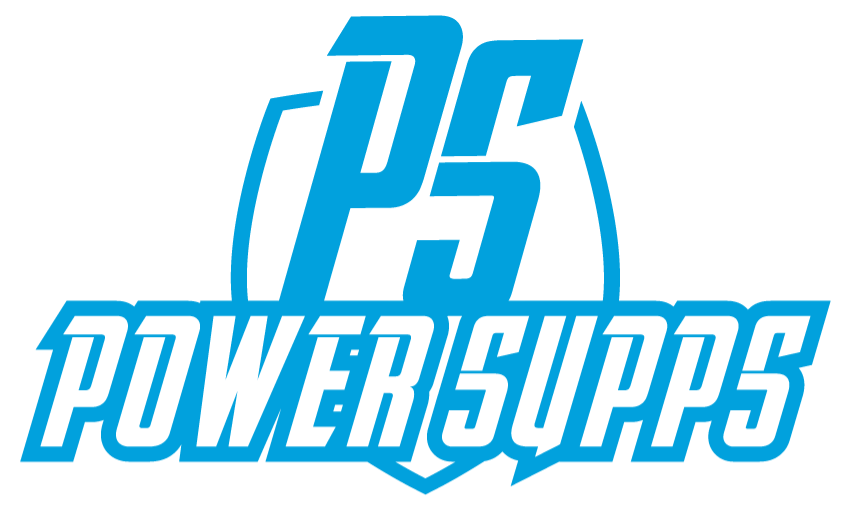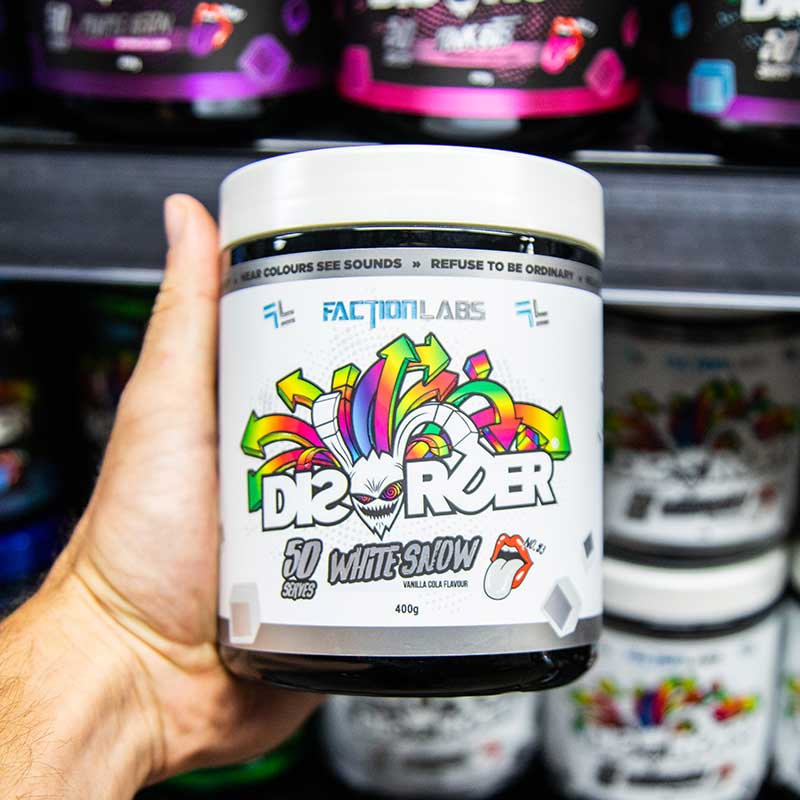Nutrition, Supplements
Can Pre Workout Cause A Positive Drug Test?
Pre workout supplements are usually made up of several individual supplements that come together to give you a boost of energy, focus your attention, and take your workout to the next level.
However, as most pre workout supplements are a mix of different ingredients, there’s a chance that some could show up on a drugs test. This is especially true for those that contain DMAA as this is a banned ingredient that acts similarly to amphetamine.
Here, we’re going to take a closer look at supplement ingredients that may trigger a positive drug test. We’ll also look at Australian guidelines on supplementation in sports and more.
What Are Some Common Ingredients Found in Pre Workout?
To kick things off, let’s take a look at some of the most common ingredients found in pre workout supplements and which of these may produce a positive test.
DMAA
As we mentioned above, DMAA is a banned ingredient, which has been known to show up on drug tests as amphetamine due to its relation to the molecule and similar effects. It’s a tricky ingredient to navigate as well, as it can be listed under several different names, or also several related metabolites, including:
- Geranamine
- 4-Methyl-2-hexamine
- 4-Methyl-2-hexylamine
- 1,3-DMAA
- 1,3-Dimethylpentylamine
- 1,3-Dimethylamylamine
- Dimethylaylamine
- Methylhexamine
- Methylhexanenamine
- 2-Amino-4-methylhexane
- 2-Hexamine, 4-methyl- (9cl)
It’s best to avoid any pre workout supplements that contain any of these ingredients due to the health risks associated with their use and the risk of being positive on a drug test.
Caffeine
Surprisingly, caffeine is also capable of producing a false positive on drug tests. The reason for this is that it is in such high doses in pre workouts, so while a few cups of coffee won’t bring anything up, large amounts of caffeine in your system can also show up as amphetamines.
The level of caffeine in your system needs to be very high for this to happen, though. We’re talking in excess of 400mg. But, when you consider many pre workout supplement companies recommend high doses that continue to climb in line with your body weight, it is possible to get this much caffeine into your system alongside any other caffeine-based products you’ve consumed that day.
Beta Alanine, Creatine, and L-Arginine
Ingredients included in most pre workout supplements that you don’t need to worry about include beta alanine, creatine, and l-arginine. These are all legal, perfectly safe, and, most importantly, do not show up on drug tests.
What Ingredients in Pre Workout Can Cause a False Positive in Drug Tests?
There are only two ingredients found in pre workout supplements that you need to worry about triggering positive results on a drug test: DMAA and caffeine.
DMAA, specifically, contains an amphetamine like compound that is quite likely to show on a drug test (1). Caffeine is less likely to show, but it is still possible if you have more than 400mg in your system.
With this in mind, it’s a good idea to avoid pre workouts that contain either DMAA or caffeine if you need to avoid a positive drug test. Likewise, you should ensure that, if you have chosen a pre workout that contains caffeine, you monitor both the dosage and your caffeine intake from other foods and drinks throughout the day.
What Are The Australian Guidelines on Supplementation in Sport?
In Australia, an “ABCD” classification is in place for ranking supplements and sports foods such as protein powder and energy drinks. This four-group system determines whether an ingredient is safe or permitted and is supported by scientific evidence and practical considerations.
Of these four groups, Group D contains substances that are banned or that are considered high-risk dietary supplements that could lead to testing positive for drugs (2). These include:
- Strychnine
- DMAA
- DHEA
- Maca root powder
- Andarine
- GW1516 (Cardarine)
There are, however, certain windows for detecting these ingredients on a drug test. Several won’t appear in urine or saliva samples for up to 7 days, while others may be present in as little as 1 hour.
Of course, it all depends on the dosage of pre workout supplement you’ve taken as well. If you’re unsure, it’s best to check with the pre workout supplement manufacturer, who should be able to provide you with more information on dosage and detection.
What Substances That Can Be Found in Pre Workouts Are Banned in Australia?
There are several banned substances in Australia that can be common ingredients in pre workout in other countries. However, there are also some that are only banned for specific use (e.g. prohibited in competition but not for basic gym use).
Prohibited All Times
Ingredients and substances that are prohibited at all times include:
- Non-approved substances such as BPC-157
- Anabolic steroids
- Peptide hormones, including Epoetin, Zoladex, and Decapeptyl
- Beta-2 agonists such as Albuterol
- Hormone and metabolic modulators, including Anastrozole, Raloxifene, and Fulvestrant
- Diuretics and masking agents
- Gene and cell doping through the use of nucleic acids
Prohibited in Competition
Ingredients and substances that are prohibited in competition but authorised for regular gym use include:
- Medical stimulants such as Ritalin and any medicine containing Pseudoephedrine
- Medical narcotics such as Fentanyl, Morphine, and Oxycodone
- Cannabinoids of any kind, including cannabis
- Glucocorticoids, including over-the-counter medicines such as Hydrocortisone
Prohibited in Certain Sports
The only ingredient prohibited for use in certain sports is beta-blockers, which are usually used to treat heart conditions and glaucoma.
Beta-blockers work by reducing the speed and force of the heart, widening blood vessels (for improved blood flow), and reducing blood pressure. However, if not prescribed and, therefore, used incorrectly, they can cause dramatic blood sugar fluctuations and even heart failure.
The following sports prohibit the use of beta-blockers:
- Archery
- Automobile sports
- Billiards
- Darts
- Golf
- Shooting
- Skiing
- Snowboarding
- All disciplines of underwater sports, including freediving and spearfishing
How Can You Avoid Failing a Drug Test with a Pre Workout Supplement?
There isn’t a concrete way to avoid failing a drug test when taking pre workouts, but there are some things you can do to reduce the risk of getting a false positive.
The first, and perhaps most obvious, is to avoid taking pre workout that contain DMAA. This ingredient poses health risks and is notorious for showing a positive on drug test results despite the fact it is not a drug. Depending on your dosage and tolerance as well, DMAA could show as amphetamine even in trace amounts, so it’s best to just avoid it altogether.
Be mindful when it comes to pre workout drinks and food as well, as these often masquerade under the guise of “protein” or “energy” but may still contain caffeine in high doses.
It’s also a good idea to keep yourself up to date on the latest goings on in the fitness industry, specifically with substances. That way, you’ll be kept in the loop should something suddenly become a banned substance, and you can switch your pre workout for something else straight away.
You can also ask other gym-goers and athletes if they have been or are regularly drug tested and, if so, what pre workouts they take to avoid a positive reading.
Finally, you may want to stop taking pre workout if you’d rather not run the risk, which is always a sensible option. While many people find it beneficial to their training, it isn’t essential, and there are other things you can do to increase your energy levels, such as staying hydrated and getting enough sleep.
Final Thoughts
While the ingredients and other substances found in most pre workout are not drugs, they are still capable of producing a positive drug test. So, be sure to check product labels and all the ingredients to be safe side. Avoid any pre workouts that contain DMAA or super high doses of caffeine, and keep up to date with industry news on banned substances. Doing this will dramatically reduce the chance of you testing positive for banned substances and keep your goals on track.
References
- “Dimethylamylamine: a drug causing positive immunoassay results for amphetamines” sourced from: https://pubmed.ncbi.nlm.nih.gov/21439156/
- The Australian Sports Commission. Sourced from: https://www.ais.gov.au/nutrition/supplements/group_d

